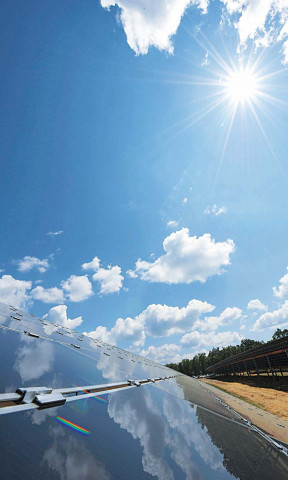Where are the Captains of Industry?

Here’s the tale, in a nutshell. The price of cotton, and cotton yarn has spiked in global markets. Pakistani spinners made themselves a killing exporting their yarn, while local garment manufacturers and weavers began to cry foul, saying there is not enough yarn left in the local market and its price is beyond their ability to pay.
The obvious question is so what? If you can’t afford the vital input for your industry, then too bad, right? But the so-called “value added” sector claims that given the number of people it employs, it is entitled to ask for special protections against adverse price movements of its most essential input.
Reps for the “value added” sector go on to argue that such protections are not unusual, and many country’s intervene to protect domestic industry from price spikes in international markets. Such arguments are in fact easy to make. For years the auto industry has argued for extension after extension of on its deletion program in the name of all the people it employs.
Never mind that the bulk of its most important inputs continue to be imported, that dealers continue charging a premium for up front delivery, that customers continue to deal with uneven quality. Taxpayer funded protections, consumer funded price differentials (the price of an 1800cc luxury sedan in Mumbai ranges from 996k to 1.38million IRs, where the same model here is for more than 1.8million PRs), are luxuries our manufacturers have gotten too used to.
While the two segments of the textile supply chain fight it out with each other, the traders are up in arms about the VAT. They advance two arguments against the new tax. First, they say the new legislation contains draconian penalty clauses, and second they argue that the culture of refunds that the tax will re-introduce opens the door to large scale corruption.
But the traders’ protest is drowned out by the politics that the new tax has unwittingly unleashed. Suddenly Sindh sees the opportunity to right an old wrong and claim its rightful share of all tax collected on services. Between the “big four” services, telecoms, banking, insurance and travel, the amount of revenue at stake could be close to 200 billion rupees by some estimates.
No wonder the Provincial government of Sindh is eager to seize the moment. “This is bigger than the Kalabagh dam now,” confides a senior official the Sindh government who is directly involved in the VAT issue. “No politician who gives up the right to this revenue will be able to go back to his or her constituency.”
Perhaps, but the web is already so heavily tangled up that one is left wondering what the government is going to do about it. Sindh’s Standing Committee on Finance and Revenue has already rejected the law that would devolve the right to collect tax on services to the center, an essential plank in the overall structure of the VAT.
The National Assembly has prorogued itself till May 31, without passing the VAT bill. Incidentally, May 31 is the deadline set by the IMF for the passage of the VAT legislation. The National Assembly’s Standing Committee on Finance even cancelled its last session where it was meant to wind up its discussions on the law, finding itself unable to resolve the deadlock between the centre and Sindh.
Will we make the deadline set by the IMF? It is looking highly unlikely now. So what options are left for the government? One would be to ask for an extension on the deadline. The other would be to try and pass the legislation as part of the Finance Bill, the way the original Sales Tax Act was passed way back in 1990.
What is amusing to see in this tangled mess is how the biggest stakeholders in the entire enterprise, our manufacturing industry, has squabbled and bickered amongst themselves through it all and essentially opted out of the entire debate.
The outcome is therefore being shaped by that section of the business community that adamantly refuses to pay taxes on the one hand, and politicians trapped by the aspirations they themselves have stoked.



















COMMENTS
Comments are moderated and generally will be posted if they are on-topic and not abusive.
For more information, please see our Comments FAQ